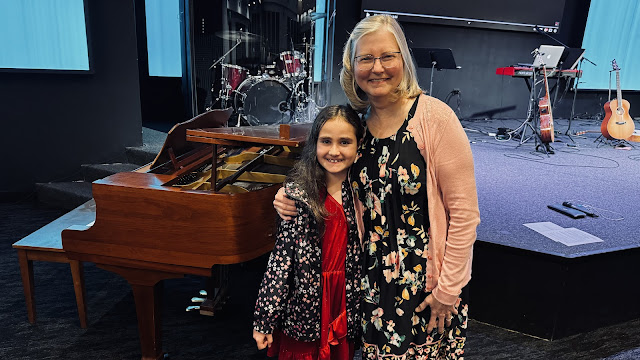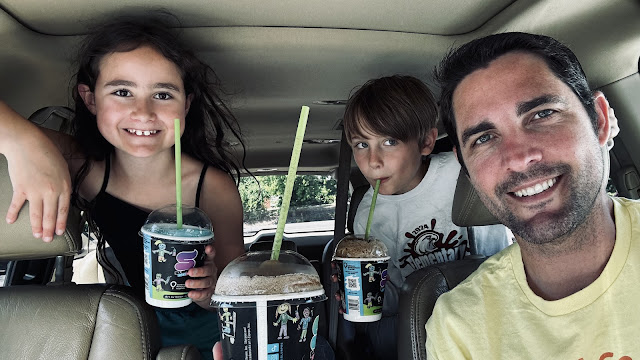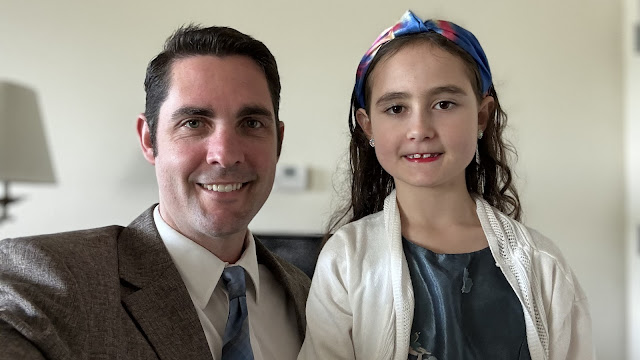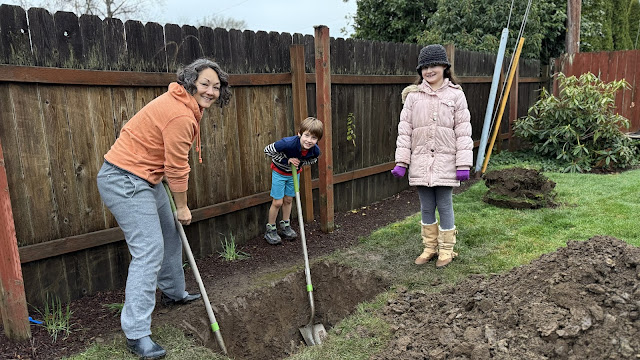Goodbye, Friend
On Christmas Eve, my best friend, Vinnie, passed away. I did some estimating, and because I work from home, I spent more time with him than anyone else during my lifetime (the next closest are my parents, and Jessi will pass them in a couple of years). I truly enjoyed having him around.
And it's not just the time, like eating lunch together and cuddling at night. It's all the little ways he constantly interacted with us. For example, when I arrived home, he greeted me. He inspected what we bought when we put grocery bags on the ground. Dropped food on the ground? No problem! He'd hoover it up! He also knew when we were sad and simply needed a friend nearby.
We knew it was coming, but it's still incredibly hard, and I imagine I'll continue to have moments of sadness for the rest of my life. Right now, those moments come at unexpected times, when I suddenly realize he's not here. For example, I said goodbye to him when I was the last one to leave the house. Now, it feels like I'm missing something when I leave. :(
We don't have any immediate plans to get another pet. As much as I hate this feeling, I also want to sit in the loss and honor his memory. Plus, as our kids start traveling more with us, it potentially gives us more flexibility in our planning.
Vinnie, you were a good boy. I miss you.
Jessi's Benign Brain Tumor
That's how we ended the year, but we started the year with an initial shock. Here's Jessi on her health situation:
We started the year leaning that I had a benign brain tumor on my pituitary gland. It was causing problems which led to the diagnosis but it was a classic meds caused more side effects than the actual tumor. My friend named the tumor Tina so I could have someone to yell at on the hard days.
Some days I just slept, others seemed halfway normal and still others were riddled with nausea and vertigo. For now the medication seems to be doing its job and I have reached an equilibrium and a new normal. I am about 1 year into a 2-3 year treatment plan so not done but making progress. It has been a blessing too though! Seeing my kids grow up before my eyes handling everything with empathy and maturity. And also learning to accept help. Thank you for all of your prayers and care for our family!
Naming her tumor is kind of goofy, but I'm on board with whatever helps her feel better.
Travel With Kids
2024 wasn't all bad (actually, it was a good year). For example, I took four plane trips this year, each with at least one kid (1 with Elinor, 2 with Samson, and 1 with both). It turns out that both kids are super fun to travel with!
Like me, they think airports and airplanes are cool. Elinor likes window shopping, and both enjoy walking the entire terminal with me. I enjoy seeing where other planes are going and asking if they'd like to go there someday. They usually have no idea where it is, but they play along. All the other parts - the rental car, the hotel, and the reason for going - are also super fun with them.
I want to keep taking them on trips, so I dipped my toe into the credit card hacking game to help afford it. I'm still a n00b, but I'm learning, and I had our last flight wholly paid for with points.
 |
| Seeing the Mississippi River |
 |
| Is Samson a man or a muppet? |
A Wonderful Split Summer
We tried a new schedule this summer with the kids.
I worked until 11am, and Jessi watched the kids. Jessi mainly focused on academics.
At 11am, I'd take over, and Jessi would go to work (and stay later). Sometimes, I helped them finish their academic work, but most of the time, we just played. And sometimes, they'd join me in a meeting or tour a property.
It was fantastic! We felt like we had meaningful time with the kids, but it wasn't in day-long chunks, which can feel exhausting by the end of the day. It also offered tons of flexibility and diminished boredom. In short, it was great, and we want to keep that schedule in future summers.
Real Estate
On the business front, we purchased four properties with nine other investors. We got:
- A single-family home that was in pre-foreclosure. We did minor repairs and sold it as a fixer-upper.
- Another single-family home from an owner with advanced dementia who needed to move into assisted living. We're gutting the place and will resell it as a starter home.
- A manufactured home that the park owners repossessed. We're doing cosmetic updates and will resell it.
- Two homes on a single lot, which we'll split into two lots and resell.
It's a different type of investing than I've done before, but I love that we can solve more complex problems by partnering with other investors. We plan to buy more in 2025, so if you want to partner with us, you can check out our investment thesis and track record.
I partner with people who may not have the time or expertise to invest independently. It works well because they can earn passive income through real estate without dealing with tenants, toilets, or headaches.
I also know that some folks already own rentals but don't necessarily want to manage them themselves - which I understand because Oregon isn't landlord-friendly. So, I recently started offering property management services. It's another way I'm helping investors earn passive income.
Furlo Capital Real Estate Podcast
Jessi and I started a podcast at the beginning of last year. We committed to doing 50 episodes before even asking if it was worth it. And pleasantly, I noticed two benefits shortly after starting:
- It's a fantastic way for Jessi and me to connect on what's happening in the business - so we're better aligned.
- I regularly practice sharing what I do, which makes conversations with investors better.
These two benefits make it worth continuing, so that's the plan! We'll also occasionally invite people to do interviews. Thanks to everyone who listens or watches our short clips.
Health
I felt an acute decline in my health last year. Everyone over 40 knows this, but it's harder to stay fit, injuries happen easier, and recovery takes longer. It's lame, but there's still plenty of aging I control. So, I'm doubling down on my health intentionality. For starters, I created a 1-page reminder/affirmation that I'll regularly review to keep things top of mind.
 |
| Am I missing something? Let me know. |
You'll notice there are no health goals, like losing 20 pounds or having visible abs, because those are results. Instead, I'm focused on my behavior, like tracking my calories and working out. If I do that, my body will do its miraculous thing and take care of the rest. I know I won't do everything on this aspirational reminder perfectly, but that's OK.
The Setting of Time & Priorities
I have a looong list of business and personal things I want to accomplish this year. Some are year-long projects, but many simply require 10-40 hours of focus.
To help me get everything done, I'm experimenting with some new daily rhythms. One area I'm changing is my evening activity.
I'm a morning person with an energy drop-off from 1-4pm. I bounce back until 8pm, and then I'm mentally done. As a result, I tend to default to Netflix (et al.) after the kids go to bed. I know it's not the best use of my time (or great for my health), but it's all I feel like I can muster.
This year, I'm attempting to read, write, or work on a hands-on project (or go to bed early). It's not my "best" time of day, but I'm trying to enjoy the process and not get distracted by "how much better it would be if I did this in the morning."
As a bonus, it should slightly increase my NEAT (Non-Exercise Activity Thermogenesis) and help my overall health.
Looking Forward To 2025
I modified a Jim Rohn quote that I regularly review:
"Don't pray it was easier, pray I am better. Don't pray for less problems, pray for more skills. Don't pray for less challenge, pray for more wisdom."
One lesson from last year is to be careful of what you pray for - because God answers prayers (that align with His will and are best for you in the long run (Rom 8:28)). I also know I can pray those requests with confidence because if God gives me more than I can handle, it'll be to produce a character that relies on the hope of God instead of myself (2 Cor 1:8-9 & Rom 5:3-5).
All that to say, 2024 was a tougher-than-average year for us, but that's OK.
I don't know what's in store for us in 2025. I mean, I'm an unbounded optimist, so I think it'll be amazing! But even if challenges continue to pile on, that's OK. We'll keep praying to be better equipped to handle it and rely on God. If 2025 turns out to be a year of generosity, we'll REALLY have to double down on our prayers to handle it gracefully.
Thanks for reading. Feel free to check in with us throughout the year to see how things are going.
 |
| Elinor's piano recital |
 |
| A random day in May |
 |
| One of Vinnie's favorite spots |
 |
| Every parent's dream |
 |
| Camping with my extended family |
 |
| I think we need a bigger pool |
 |
| July 11 - Slurpee Day |
 |
| Legoland |
 |
| He "cleaned" our peanut butter containers |
 |
| Thanksgiving |
 |
| Yeah. That's happening. |
 |
| Ready for a wedding |
 |
| Classic |
 |
| Fishing! |
 |
| Watching the Knights baseball game |
The kid's Christmas concert
 |
| Vinnie's final resting place. A surprisingly fun time as a family. |































































